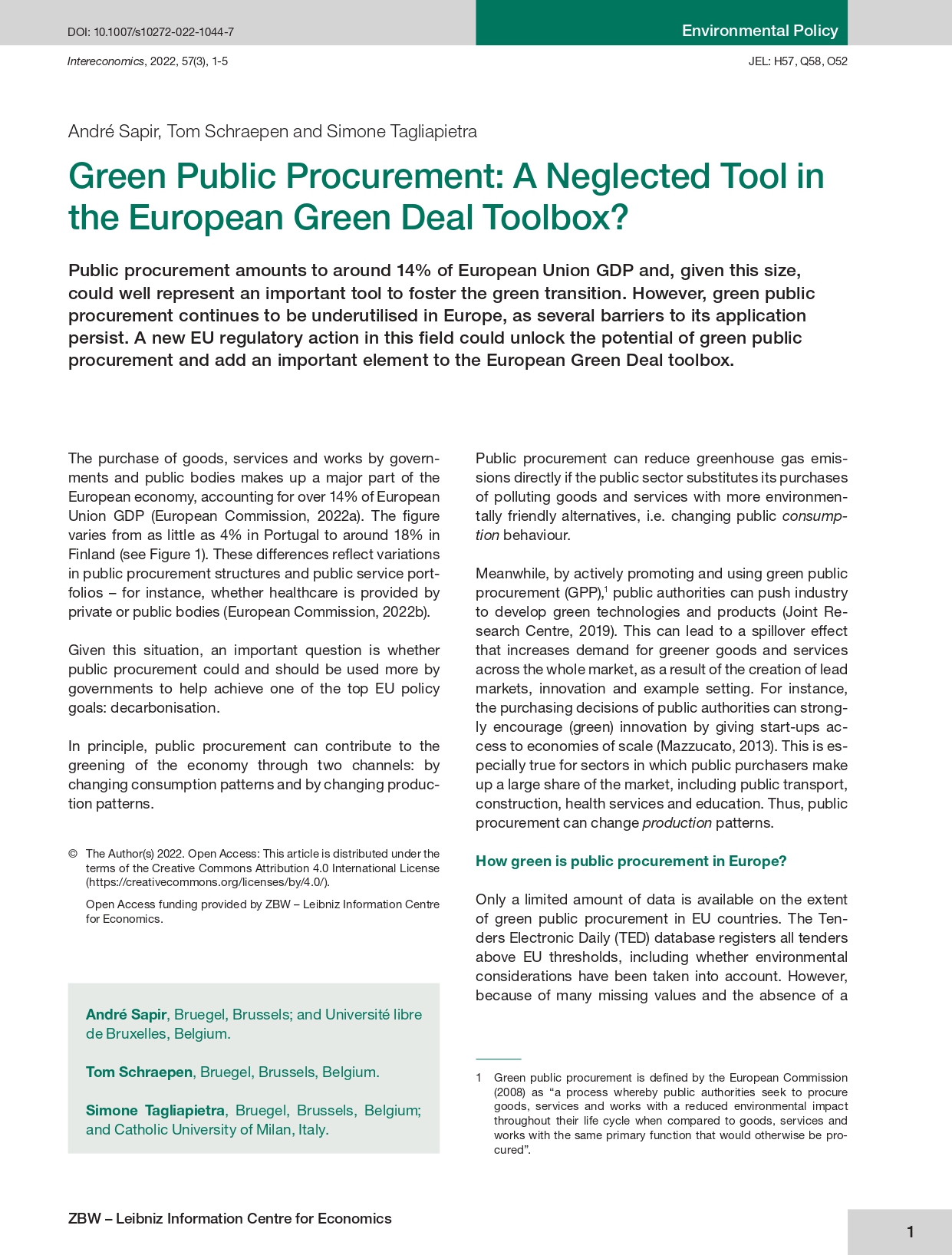Opinion
EU policy recommendations: A stronger legal framework is not enough to foster national compliance
In 2011, the EU introduced stricter rules to monitor the implementation of country-specific policy recommendations. Using a new dataset, this column investigates whether these new laws have increased national compliance. There is no evidence that these stricter processes matter for implementation rates, whereas macroeconomic fundamentals and market pressure are important determinants of implementation progress. These results suggest ways to improve the effectiveness of European policy coordination that go beyond stronger legal processes.
Macroeconomic imbalances in EU countries and their fallout during the crisis have led the EU to adopt stronger surveillance laws. In particular, a new mechanism called the Macroeconomic Imbalance Procedure (MIP) was introduced in 2011 to deal with imbalances. Together with fiscal surveillance and broader structural surveillance they form the ‘European Semester’.
But is this reinforced form of policy coordination actually working? Do member states implement the recommendations they receive from the EU? Only a few empirical studies have investigated the implementation of country-specific recommendations and its determinants. One notable exception is a study by EU Commission staff (Brincogne and Turrini 2017).
EU recommendations and their implementation
In a new paper (Efstathiou and Wolff 2019), we have put together a comprehensive dataset containing (a) the country-specific recommendations EU member states received from 2013 to 2018; and (b) the European Commission’s measure of the progress countries made in implementing each recommendation. The dataset covers all the recommendations except those related to fiscal surveillance. Countries under financial assistance programmes are not covered by the macroeconomic imbalance procedure and are therefore not included in our sample.
Overall implementation has deteriorated at a time of subsiding market pressure and falling sovereign spreads. Average implementation scores have fallen since 2014, with an additional sharp drop taking place in 2018 (Figure 1). Moreover, implementation rates among countries judged to have particularly excessive macroeconomic imbalances according to the macroeconomic imbalance procedure drive this decline.
Implementation rates also vary across countries. The countries with the highest implementation scores were the United Kingdom, Finland, Slovenia, Malta, and Ireland. We observe low scores for Luxembourg, Hungary, Slovakia, Germany, and Sweden (see Figure 2).
Implementation scores also vary substantially across policy areas (Figure 3). Scores on average are high for the sectors of financial services, skills and life-long learning, and childcare. However, recommendations in several sectors are overall poorly implemented, for example those related to taxation, reducing the debt bias, competition in services, unemployment benefits, and the long-term sustainability of public finances including pensions.
The drivers behind the lack of implementation
But what is behind these falling implementation rates? In our paper, we test three hypotheses: first, that the likelihood of implementing recommendations is influenced by macroeconomic fundamentals; second, that pressure from financial markets increases implementation rates; and finally, that stronger macroeconomic surveillance at the EU level, captured by the classification of countries into imbalances categories, increases the probability of implementing recommendations. The classification of countries into the imbalances or excessive imbalances categories of the macroeconomic imbalance procedure results in stronger legal obligations. Moreover, countries with excessive imbalances are subject to tighter monitoring and could face more severe consequences in case of non-compliance. We also control for political factors and the policy area of individual recommendations.
First, we find that countries with high public and external deficits are more likely to implement recommendations. Larger public and external deficits were either the root cause or the symptom of the European debt crisis, so member states that were vulnerable because of these fundamentals might have had little choice but to implement recommendations.
Second, whether financial market pressure increases the probability of implementation depends on the choice of variable. The coefficient on the one-year sovereign default probability is positive and statistically significant, but when the five-year credit default swap spread takes its place, statistical significance vanishes.
Third, stronger surveillance under the macroeconomic imbalance procedure does not seem to drive implementation rates. The categorisation of countries into either the imbalances or the excessive imbalances category does not result in a statistically significant effect when compared to countries with no imbalances. The difference in implementation between the groups with imbalances and excessive imbalances is not statistically significant either.
Our results suggest only a limited effectiveness of EU policy recommendations given to member states. In particular, stronger legal obligations and tighter monitoring do not seem to increase the implementation of recommendations, which is affected instead by macroeconomic fundamentals and financial market pressure. We therefore recommend that the EU reconsider its approach to policy coordination. Legally stronger processes are unlikely to have strong effects on national sovereign decision makers. Instead, we consider it more important that recommendations are more clearly and forcefully communicated. The EU process currently is difficult to digest and often gets unnoticed at the national level (Hallerberg et al. 2018).
A second dimension for improvement concerns focus. We find that, while many recommendations are pertinent, there are also many recommendations where the link to macroeconomic imbalances is difficult to establish. We would recommend that the EU policy coordination focus in particular on issues with significant macroeconomic spillovers on the EU as a whole, while leaving other goals at the national level, in the spirit of subsidiarity.
Finally, our results are also a call on member states to deliver on the truly important reforms. Without relevant reforms implemented at the national level, in particular in vulnerable countries or in countries with strong spillovers to the rest of the EU such as Germany, the EU and the euro area both risk remaining more vulnerable and fragile than necessary.
References
Bricongne, J and A Turrini (2017), “The EU macroeconomic imbalance procedure: Some impact and no sanctions”, VoxEU.org, 22 June.
Efstathiou, K and G B Wolff (2019), “What drives national implementation of EU policy recommendations?”, Working Paper 2019/04, Bruegel.
Hallerberg, M, B Marzinotto and G B Wolff (2018), “Explaining the evolving role of national parliaments under the European Semester”, Journal of European Public Policy 25(2): 250-267.
Republishing and referencing
Bruegel considers itself a public good and takes no institutional standpoint.
Due to copyright agreements we ask that you kindly email request to republish opinions that have appeared in print to [email protected].












